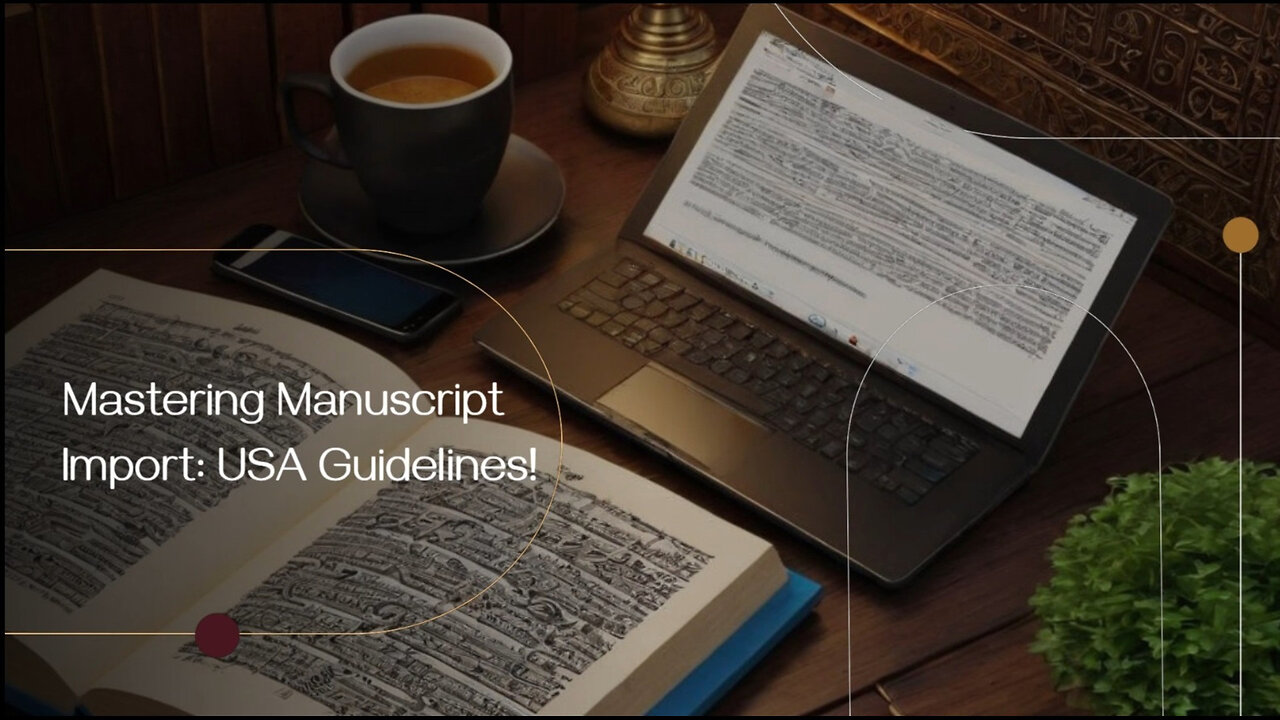Premium Only Content

Unraveling the Customs Maze: Importing Rare Manuscripts and Restoration Supplies
ISF Customs Broker
800-710-1559
isf@isfcustomsbroker.com
https://isfcustomsbroker.com
In today's video, we delved into the topic of importing rare manuscripts and historical documents, as well as restoration and preservation supplies for archivists, into the USA. We emphasized the importance of protecting and preserving our cultural heritage and the crucial role that archivists play in this process.
To successfully navigate the customs clearance process for these unique and delicate shipments, it is highly recommended to partner with a knowledgeable customs broker who specializes in handling such items. Customs brokers can assist in understanding and fulfilling the necessary customs requirements, ensuring a smooth clearance process.
One essential aspect of the customs clearance process is obtaining a customs bond, which acts as a financial guarantee between the importer, the customs broker, and the US Customs and Border Protection (CBP). This bond ensures the payment of all duties, taxes, and fees related to the importation.
Importing rare manuscripts and historical documents also requires the filing of an Importer Security Filing (ISF). This filing, submitted to CBP at least 24 hours before the goods are loaded onto the vessel bound for the USA, provides valuable information about the shipment, including the shipper, consignee, and contents.
Given the delicate nature of these items, it is crucial to consider their packaging and handling during the importation process. Suppliers of restoration and preservation supplies often offer specialized packaging materials, such as acid-free tissues and archival boxes, which help protect against damage during transit.
Upon arrival in the USA, the shipment must go through the customs clearance process. The customs broker will guide the importer through the necessary documentation, including the commercial invoice, packing list, and any permits or licenses required for importation.
Customs officers may take extra precautions when handling rare manuscripts and historical documents, so understanding and complying with the specific regulations for these items can help streamline the inspection process and reduce potential delays.
Once the shipment successfully clears customs, the imported rare manuscripts and restoration supplies can be utilized by archivists to restore, preserve, and conduct research on these invaluable pieces of history. By providing archivists with the necessary tools and supplies, we contribute to the ongoing preservation and understanding of our cultural heritage.
Thank you for joining us today as we explored the intricacies of importing rare manuscripts and historical documents, as well as restoration and preservation supplies. We hope you found this information valuable and informative. Make sure to subscribe to our channel to stay updated on our upcoming videos. Until next time, happy importing!
#usimportbond
#isfcustomsbroker
#uscustomsclearing
#isfentry
Video Disclaimer Here: This video is for educational purposes only and we are not affiliated with any US government agencies/companies/individual/etc.
00:23 - Importance of Customs Compliance: When importing rare manuscripts and historical documents into the USA, it's crucial to navigate customs regulations and processes to protect cultural heritage effectively.
00:41 - Role of Customs Brokers: Engaging a knowledgeable customs broker specializing in delicate shipments is recommended to ensure a smooth importation process, including understanding customs requirements and obtaining necessary customs bonds.
01:21 - Documentation and Security Filings: Importers must file an Importer Security Filing (ISF) with U.S. Customs and Border Protection at least 24 hours before loading shipments, along with preparing essential documents like commercial invoices and packing lists.
01:45 - Safe Packaging and Handling: Proper packaging using specialized materials is vital for the safe transport of rare manuscripts, and compliance with customs regulations can facilitate the inspection process, ultimately aiding archivists in preservation efforts.
-
 LIVE
LIVE
TimcastIRL
2 hours agoTrans Shooter Targets Catholic Kids In Mass Shooting, Leftists Reject Prayers | Timcast IRL
29,173 watching -
 LIVE
LIVE
SpartakusLIVE
3 hours ago#1 Birthday Boy Celebrates with MASSIVE and HUGE 4.8-Hour Stream
466 watching -
 UPCOMING
UPCOMING
Man in America
5 hours agoFrom Oil Barons to Pill Pushers: The Rockefeller War on Health w/ Jeff Adam
3.04K1 -
 LIVE
LIVE
Barry Cunningham
2 hours agoBREAKING NEWS: PRESIDENT TRUMP THIS INSANITY MUST END NOW!
12,330 watching -
 LIVE
LIVE
StevieTLIVE
1 hour agoWednesday Warzone Solo HYPE #1 Mullet on Rumble
105 watching -
 5:58
5:58
Mrgunsngear
2 hours ago $0.38 earnedBreaking: The New Republican Party Chairman Is Anti 2nd Amendment
1.11K3 -
 LIVE
LIVE
Geeks + Gamers
2 hours agoGeeks+Gamers Play- MARIO KART WORLD
401 watching -
![(8/27/2025) | SG Sits Down Again w/ Sam Anthony of [Your]News: Progress Reports on Securing "We The People" Citizen Journalism](https://1a-1791.com/video/fww1/d1/s8/6/G/L/3/c/GL3cz.0kob.1.jpg) 29:34
29:34
QNewsPatriot
2 hours ago(8/27/2025) | SG Sits Down Again w/ Sam Anthony of [Your]News: Progress Reports on Securing "We The People" Citizen Journalism
3.08K1 -
 25:12
25:12
Jasmin Laine
7 hours agoDanielle Smith’s EPIC Mic Drop Fact Check Leaves Crowd FROZEN—Poilievre FINISHES the Job
3.68K15 -
 LIVE
LIVE
ZWOGs
11 hours ago🔴LIVE IN 1440p! - SoT w/ Pudge & SBL, Ranch Sim w/ Maam & MadHouse, Warzone & More - Come Hang Out!
57 watching